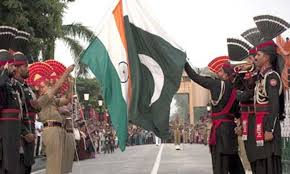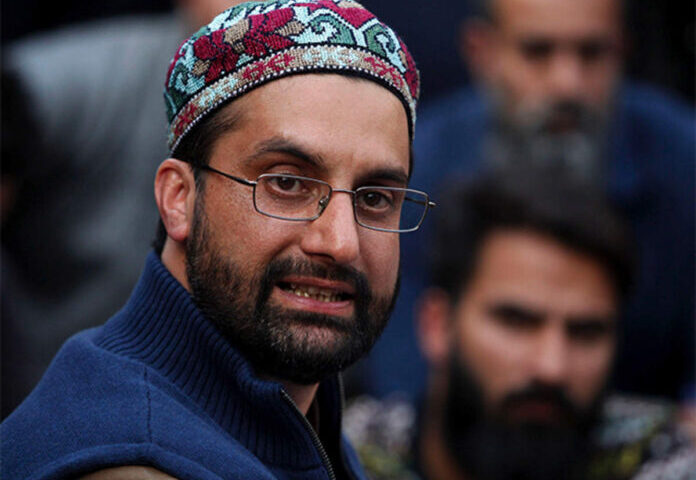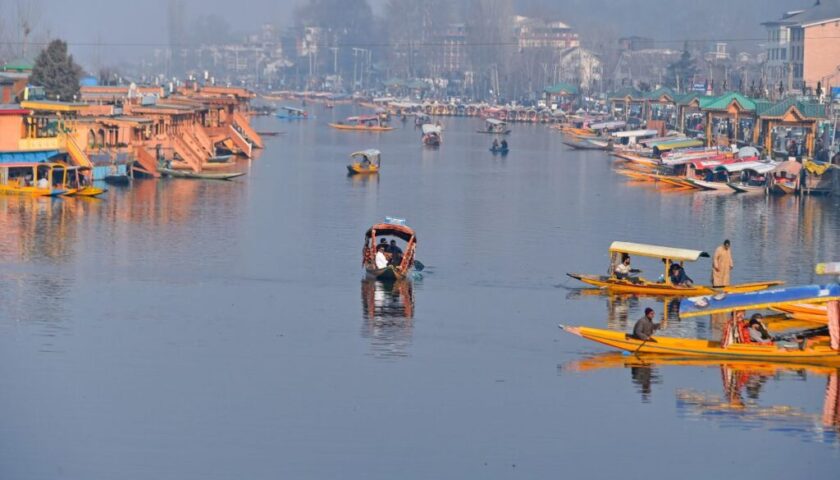India and Pakistan may have finally ended their diplomatic deadlock with the meeting of National Security Advisors in Bangkok, but the news has been met with little enthusiasm in the Kashmir Valley, where most people expressed pessimism about the future of the latest round of talks.
 On Monday morning in the heart of Lal Chowk, the commercial hub of Srinagar, vendors and shopkeepers were seen glued to local newspapers. Most papers gave a prominent mention to the NSA talks held between Ajit Doval and his Pakistani counterpart, Lt Gen NSA Naseer Khan Janjua, in Bangkok. At a packed food joint in Maisuma, customers comprising mostly of government employees, businessmen and students, say they have little hope of the talks lasting.
On Monday morning in the heart of Lal Chowk, the commercial hub of Srinagar, vendors and shopkeepers were seen glued to local newspapers. Most papers gave a prominent mention to the NSA talks held between Ajit Doval and his Pakistani counterpart, Lt Gen NSA Naseer Khan Janjua, in Bangkok. At a packed food joint in Maisuma, customers comprising mostly of government employees, businessmen and students, say they have little hope of the talks lasting.
“I don’t see anything happening…So many rounds of talks have been held between India and Pakistan, and they are still talking, but it hasn’t brought any change in Kashmir,” Ali Mohammad Sofi, 58, a customer, said. “In the past, we have seen even meetings of heads of states on Kashmir, but has it brought any change to our lives? No, it hasn’t,” said Ashiq Hussain, another customer.
The National Security Advisors held a round of talks for four hours in Bangkok on a wide range of issues including terrorism and Jammu and Kashmir and agreed to take forward the “constructive” engagement. What has raised hopes of a breakthrough on the Kashmir issue is that the Pakistani military is on board this time round, with the new NSA, Lt Gen Janjua, having the blessings of the Pakistan’s Army chief Raheel Sharif.J&K chief minister, Mufti Mohammad Sayeed, however, was optimistic about the “new beginning”. Mufti said that the two sides seem to be on the path to bridge the “huge trust deficit”. “It is a welcome step and a good beginning. We hope for success,” he told reporters in the winter capital, Jammu, adding “This is what we have been thinking. The Government of India was also thinking (on the same lines). The relations, the process of reconciliation, should start without any noise. I cannot jump the gun to say something big is going to happen. But a process has been started…of building confidence in each other. There is a beginning,” he said.
However, the inclusion of the K-word in the joint statement may cause some embarrassment for the Prime Minister Narendra Modi-led government with the former J&K chief minister Omar Abdullah asking on Twitter if India was “made to talk Kashmir” as there was no mention of ‘K’ word when the prime ministers of the two countries had met at Ufa earlier this year.
“If Pakistan was ‘made to talk terror’, was India also ‘made to talk Kashmir’ since Jammu and Kashmir had found no mention in Ufa,” Omar tweeted.
The moderate faction of the Hurriyat Conference led by Mirwaiz Umar Farooq said they were optimistic about a breakthrough on the Kashmir issue. “The two countries have to sit and talk. The visit of Sushma Swaraj to Pakistan is a positive sign and we hope that India will seriously start deliberations with Pakistan to resolve the Kashmir issue.” Shahid-ul-Islam, the political advisor to Mirwaiz, said.
On the other hand, the Hurriyat hawk, Syed Ali Shah Geelani, snubbed the renewed dialogue, saying talks between the two nations from last 68 years have never been result-oriented. “The dialogues between the two countries have never been productive,” Ayaz Akbar, Geelani’s spokesperson said.
“We don’t oppose dialogue, but unless India and Pakistan accept Kashmir as the core issue, the political uncertainty will continue to haunt the region,” he added. When Modi visited Srinagar recently and announced a developmental package of Rs 80,000 crore for the state, political commentators likened his remarks-that he did not need anyone’s advise on Kashmir- to an “oblique snub” to the chief minister.
Ajaz Ahmad, a political scientist at the University of Kashmir, said Mufti is looking at a breakthrough on the Kashmir issue, which will also become his personal legacy in the turmoil-hit state.
“At this time of his life, Mufti Sayeed would like New Delhi to make a breakthrough in the dialogue process with Pakistan so that a positive movement is achieved. It is this hope that he had previously sold to the people in Kashmir, and he would like to make it happen now,” Ajaz added.
But will that happen? The NSA-level talks in Bangkok may have provided an opening, but how far are the two countries willing to go?




